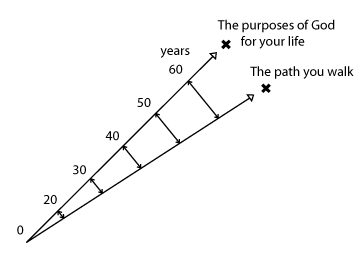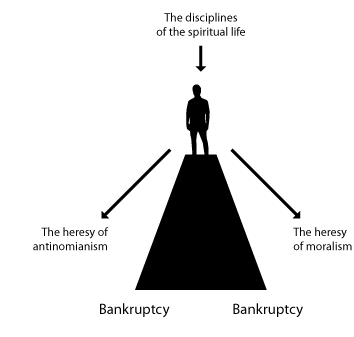It's interesting to read how totally influential the role of James Taylor was in shaping the life of his children, and in particular his son, James Hudson Taylor, who was one of the first missionaries to China. I guess it's an obvious point: the apple never falls far from the tree. Whether you like it or not, your character will be replicated in your children, for better or worse. I really feel God is saying "work on your character now, for shortly you'll be a father".
The thing about James Taylor is that he lead a very attainable life, one which you can actually see yourself leading. From the biography he appeared to be a great man leading a regular life. Nothing about it was overly remarkable. He was diligent, disciplined, loved God and loved his family. And in it he produced Hudson Taylor who was off the scale in the purposes God used him for. Hudson Taylor is one of the sole reasons why there's now 40 million Christians in China, when previously there were none. His dad, James Taylor, set a great standard for fatherhood.
Below are excerpts describing James Taylor from the 'Biography of James Hudson Taylor' by Dr. and Mrs. Howard Taylor; pages 10 to 14.
- A gifted speaker, he gave much care to the preparation of his discourses. He was an excellent chemist, too, and as a business man he was highly respected. So scrupulous was he in financial matters that he made it a rule to pay every debt the day it fell due.
'If I let it stand over a week,' he would say, 'I defraud my creditor of interest, if only a fractional sum.'
Possessed by a profound conviction of God's infinite faithfulness, he took the Bible very simply, believing it was of all books the most practical if put to the test of experience.
The children lived in touch with their father almost as much as with their mother, and he felt himself no less responsible for their training. Though he was stern and even quick-tempered at times, the influence James Taylor exerted in the life of his son can hardly be over-estimated. He was decidedly a disciplinarian. But without some such element in his early training who can tell whether Hudson would ever have become the man that he was? With James Taylor, to keep the children moderately happy and good-tempered was not the point. He was a man with a supreme sense of duty. The thing that ought to be done was the thing he put first, always. Ease, pleasure, self-improvement, had to take whatever place they could. He was a man of faith that went hand in hand with works of the most practical kind.
Family worship he conducted regularly, after both breakfast and tea. Every member of the household had to be present, and the passage read was explained in such practical fashion that even the children could not fail to see it's application. He was very particular about giving them the whole of the Word of God, omitting nothing. The Old Testament as well as the New was taken in regular course, and at the close of every day's reading the date was carefully entered in the family Bible.
He explained to them the necessity for maintaining the life of the soul by prayer and Bible study, as the life of the body is maintained by exercise and food. To omit this was to neglect the one thing needful. He spoke of it frequently as a matter of vital importance, and arranged for everyone in the house to have at least half an hour daily, alone with God. The result was that even the little ones began to discover the secret of a happy day.
China held the first place in their father's sympathies, and he often used to lament the indifference of the Church to its appalling need. It especially troubled him that the denomination to which he belonged should be doing nothing for its evangelisation.




